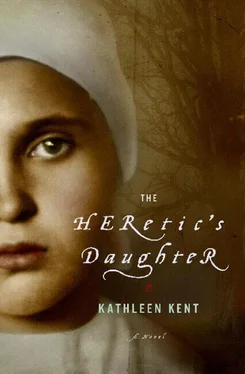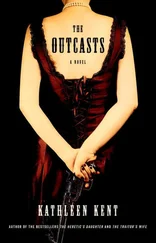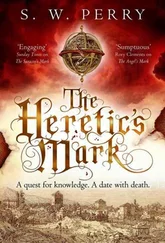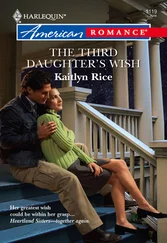When I closed the door Grandmother was already seated at her spinning wheel. Her foot was on the treadle but her eyes were thoughtfully on me. The spinner was beautifully carved of dark oak with leaves twining their way round and round the outer rim. It must have been very old, as the designs were too fanciful to have been made in the new England. She called to me and asked if I could spin. I told her yes, well enough, but that I could sew better, which was a statement only half true. A camp surgeon would have had a better hand with a cleaver to a limb than I with a needle on cloth. She spun the wool through knotted fingers glistening with sheep’s oil and wrapped the threads neatly around the bobbin. Gently probing, she teased out the story of our days in Billerica just as she teased out the fine line of thread from the mix and jumble of the coarse wool in her hands.
I did not think to tell her we lived a solitary life, as I did not know there was any other life to be had. Our plot of land in Billerica rested on poor soil and yielded little. And of late our animals seemed to sicken and die as though the ground itself leeched up the ill will of our fitful neighbors like a poisonous fog. Tom was my closest companion but he was ten years of age and worked in the fields with Richard and Andrew. My days were spent caring for Hannah and helping Mother within the dreary confines of the house. I cast about for something of interest to tell her, remembering a day last spring.
“One day,” I began, “this May past, laying Hannah down for to sleep, I crept out of the house and ran to spy on Tom. I hid behind our stone wall, for I was not supposed to be there, y’see, and I saw Father putting the plow harness round Richard and Andrew. Tom was before them, rolling from the field rocks the size of his head. He was sweating and breathing something terrible. And all the while the ox was tied under the shade of a tree. At supper I asked Tom about the ox and he whispered to me that Father was saving the ox for easier work. We have only one ox, y’see, and he is very old. It would be hard on us should he die.”
Grandmother’s foot faltered and the wheel slowly ceased turning. She pulled me closer into the crook of her arm and said, “Life is surely hard, Sarah. God tests us to see if we will put our faith in Him no matter what may come. We must attend God’s house and be guided by His ministers so that we may make our reward after death.” She paused to smooth a strand of hair back under my cap. “What say your parents on this?”
I reached out, tracing the lines on her face, and answered, “Father has told us that ministers in the new England are no better than kings in the old.”
“And your mother? Has she this opinion also?” she asked.
I told her what I had heard Mother say about a visiting parson come from the wilderness of the Eastward in the territory of Maine. She had asked him, “Are you the parson who serves all of Salmon Falls?” “No, Goody Carrier,” he answered. “I am the parson that rules all of Salmon Falls.”
I had thought to make her smile but she cupped her hands around my face and said, “Parsons are men and men will often fall short of Grace. But you could do no better than to put your faith in the Reverend Dane. He was my sister’s husband and has looked after me since your grandfather died.” She paused with her hand on my cheek and looked suddenly beyond me into the still-darkened common room. The sun had barely risen above the bottom window casing, leaving shadows pooled around the walls like draperies of black velvet. A barn owl at the end of his night’s hunting gurgled out one last protesting song. Grandmother raised her chin and sniffed at the air as though a warning wisp of smoke had found its way from the hearth. Her arm tightened around me, pulling me closer to the warmth of her body.
I have come to believe that some women can see things yet undone. My mother surely had this gift. Often without a word she would straighten her cap and smooth her apron and stand looking down the empty road that led to our house. And before long some neighbor or journeyman would appear at the yard and be surprised to find Goodwife Carrier standing at the door waiting for him. Perhaps that thread of knowingness had been passed to her from her mother. But Grandmother must have known that seeing is not enough to change the course of things, for she released me, starting the action of the treadle once more. Picking up the string of wool she said, “Accept whatever comes as the will of God, no matter how harsh. But if you are ever in need, turn to Reverend Dane and he will find a way to help. Do you hear me, Sarah?”
I nodded and stayed awhile at her side, until Mother called me away. Later I would often think on her words and wonder that she could have remained so kind under the yoke of a God who caused infants to die in the womb, women and men to be hacked to death by stone adzes, and children to suffer and die from the plague. But then, she would not be alive to witness the worst of it.
“WE’VE BEEN GIVEN a warning,” said Andrew, his voice high and brittle. It was dark but we could feel our breaths mingled together as we talked. Tom and Andrew and I sat on the sleeping pallet, our knees touching, our heads covered with the batting to mask the sounds of our whispers. Grandmother had prepared for the Sabbath with lengthy readings from Scripture before supper and it was hours before we could climb the stairs to our garret room for sleep. And so in the dark of the attic Andrew told us of Father’s progress north up Boston Way Road to the meetinghouse, the farmsteads lying along the frozen banks of the Shawshin as many as cones in a forest.
Approaching the village center, they came upon the meetinghouse, larger than the one in Billerica, with a full two stories with leaded-glass windows. It was the constable who unlocked the doors, letting them in to wait for the selectmen. The constable, John Ballard, had been positioned for fifteen years, though he was but thirty-two, and was a great bull of a man who lived less than half a mile from Grandmother’s house. Andrew grabbed my elbow, saying, “Sarah, you should have seen this fellow. He had hair the color of brass and a face that looked like boiled wax. Surely the man was poxed to have such holes on his face.”
It was another two hours before John Ballard returned with the selectmen, having left my father and brothers to shake off the cold below the drafty timbers. There were five patriarchs who finally gathered together in the meetinghouse, each wearing a thick woolen cape, none being turned or patched. They bore themselves with tight reserve and had names that were well known in Andover: Bradstreet, Chandler, Osgood, Barker, and Abbot. It was they who had the power to decide which families could stay and which families would be turned out. They sat together on benches facing my father, appearing as judges at a trial to which one was considered guilty until innocence could be proven. The most impressive, according to Andrew, was Lieutenant John Osgood, a severe and long-faced man who neither smiled nor made any words of greeting. The other men deferred to him in all things and it was he who asked most of the questions. A younger man, the town clerk, followed close by and made with quill and ink a record of the judgment.
Andrew said, leaning closer to me, “This Lieutenant Osgood shuffled a few papers about, then looked Father up and down and asked him if he knew of the smallpox in Billerica. Father answered him aye, he did know of it. Then he asked if any of us was brought to Andover ill, and Father answered no, that all of us were fit. The lieutenant squinted hard at Father, shaking his head, and I thought we were in for it. And then, what do you think happened? The door flew open and there, standing like the Angel of Light, was Reverend Dane. He stood next to us, facing those five men, and spoke of Grandmother and her long good standing in the town and asked to let us stay. I tell you, they were blown over by his words as foxglove is by a summer wind.”
Читать дальше












